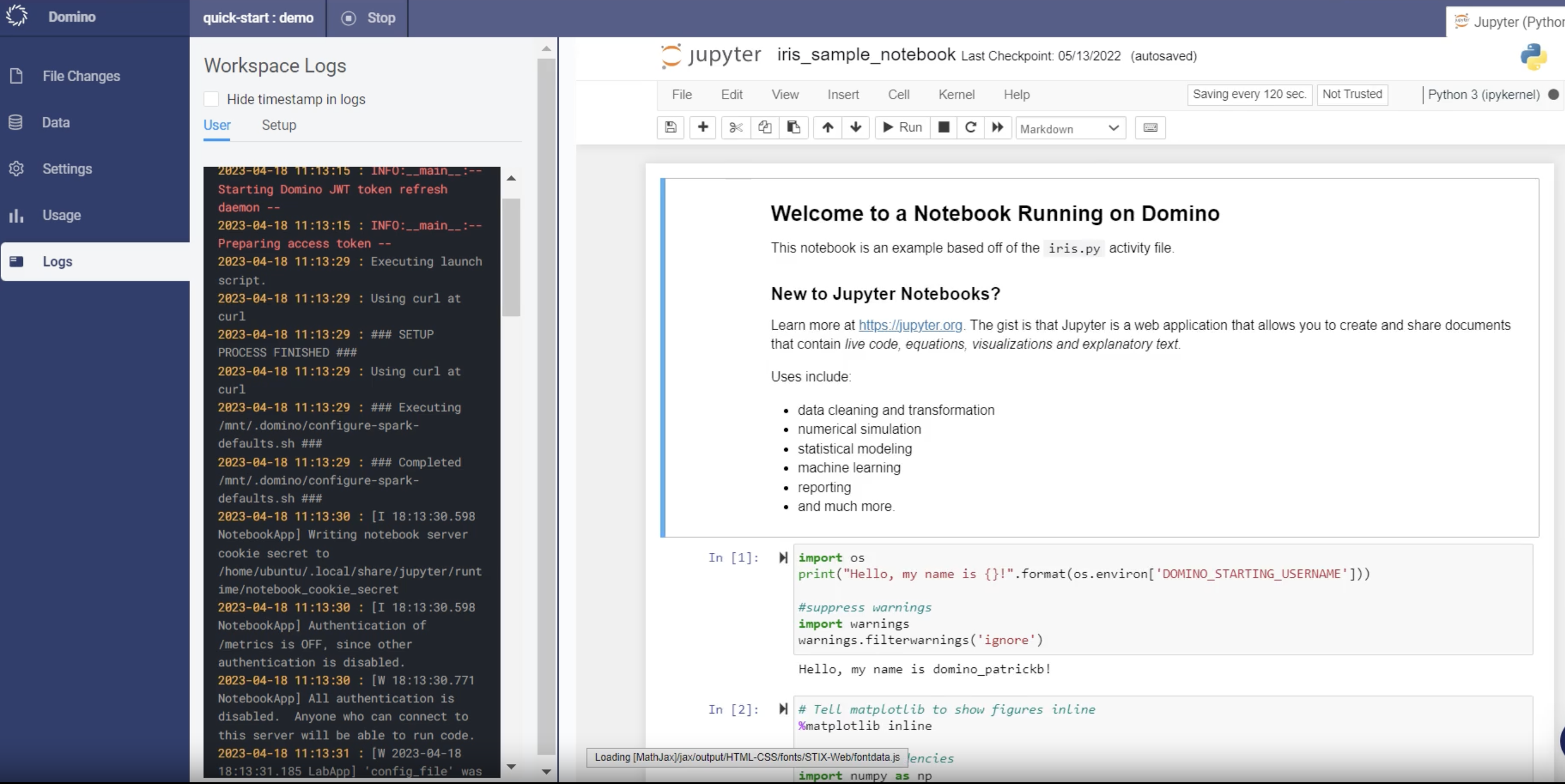This article introduces training machine learning models in Domino. See the links below to learn about Domino’s benefits and model development concepts.
Domino is a flexible platform that’s designed to work with your favorite tools:
-
Develop and train models with open-source libraries and your favorite IDEs.
-
Define custom environments to standardize libraries across your team.
-
Use built-in IDEs like Jupyter, VSCode, and RStudio. Or bring your own custom IDEs and access them directly in your browser.

-
Scale distributed workloads with Dask, Ray, MPI, and Spark.
-
Tune hyperparameters at scale with Ray Tune and other open source libraries.
Domino helps you manage experiments and models across your organization:
-
Track and monitor experiments to see logs, outputs, and more.

-
Schedule jobs for recurring processes.
-
Develop projects with Git version control.
After you understand how to train models in Domino, learn how to Deploy Models and Apps.